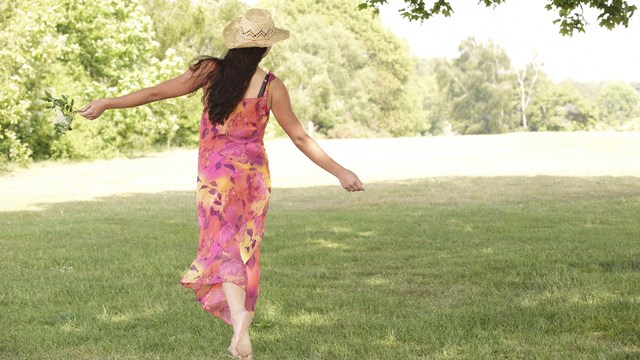 Adrian Brockwell/PhotoSpin
Adrian Brockwell/PhotoSpin
Postmenopausal women who walk now have a reason to step it up when it comes to preventing breast cancer. Walking at least seven hours per week is linked with 14-percent less risk of developing breast cancer after reaching menopause, according to the American Cancer Society.
The study was published earlier this month in the journal Cancer Epidemiology, Biomarkers & Prevention. One of the interesting findings was that the routine exercise worked in the prevention of the disease regardless of the participants’ weight.
The very large study looked at nearly 74,000 postmenopausal women already taking part in The American Cancer Society’s CPS-II Nutrition Survey cohort. That separate study was established in the early 1990s with two primary objectives:
“1) to obtain detailed information on dietary exposures and to update with additional exposure information
“2) to conduct prospective cancer incidence follow-up in addition to mortality follow-up”
The study found that those who walked more than seven hours lowered their risk. The women were walking at a moderate pace of about 3 miles per hour. The women who were more active, walking and doing more vigorous exercise, had a 25 percent lower risk of breast cancer compared to the least active.
Study leaders are still evaluating additional reasons for the positive effects exercise has in lowering the risk of breast cancer, but have some preliminary conclusions. Physical activity regulates hormones such as estrogen and insulin. These hormones can fuel the growth of breast cancer.
Most evidence indicates that physical activity may decrease the risk for breast cancer in both premenopausal and postmenopausal women. The National Cancer Institute also suggests that exercising for the prevention of breast cancer is important at a young age. When high levels of physical activity, both moderate and vigorous, is done during the adolescentyears may be, this may increase the level of protection.
According to BreastCancer.org, as they cite a 2010 study by the American College of Sports Medicine, exercise is important even after a diagnosis. “Exercise is safe during and after all breast cancer treatments (as long as you take any needed precautions and keep the intensity low) and improves physical functioning, quality of life, and cancer-related fatigue. There also is evidence that exercise can help breast cancer survivors live longer and lead a more active life.”
Sources:
“Study Links Walking to Lower Breast Cancer Risk – Cancer.org.” The American Cancer Society. Web 14 October 2013.
http://www.cancer.org/cancer/news/study-links-walking-to-lower-breast-cancer-risk
“CPS-II Nutrition Survey– Cancer.org.” The American Cancer Society. Web 14 October 2013.
http://www.cancer.org/research/researchtopreventcancer/currentcancerpreventionstudies/cancer-prevention-study
“Physical Activity and Cancer – Cancer.gov.” The National Cancer Institute – The National Institute for Health. Web 14 October 2013
http://www.cancer.gov/cancertopics/factsheet/prevention/physicalactivity#r6
“Exercise – BreastCancer.org.” Breast Cancer Org. Web 14 October 2013
http://www.breastcancer.org/tips/exercise
Joanne Sgro-Killworth is a Television Fitness Expert, Certified Personal Trainer and Sport Nutritionist and Publicist. She is Certified in Pilates, Pre-natal/Post-Partum, Yoga and Senior Fitness. She specializes in Weight Loss, Post-Rehab and Post Cancer Training.
Joanne's fitness plans, recipes and lifestyle advice are available globally on her website www.happiwoman.com/ She resides in the Phoenix, AZ area with her husband and son, where she runs her fitness and publicity business, Fitness Answer, LLC.
Reviewed October 15, 2013
by Michele Blacksberg RN
Edited by Jody Smith





Add a CommentComments
There are no comments yet. Be the first one and get the conversation started!